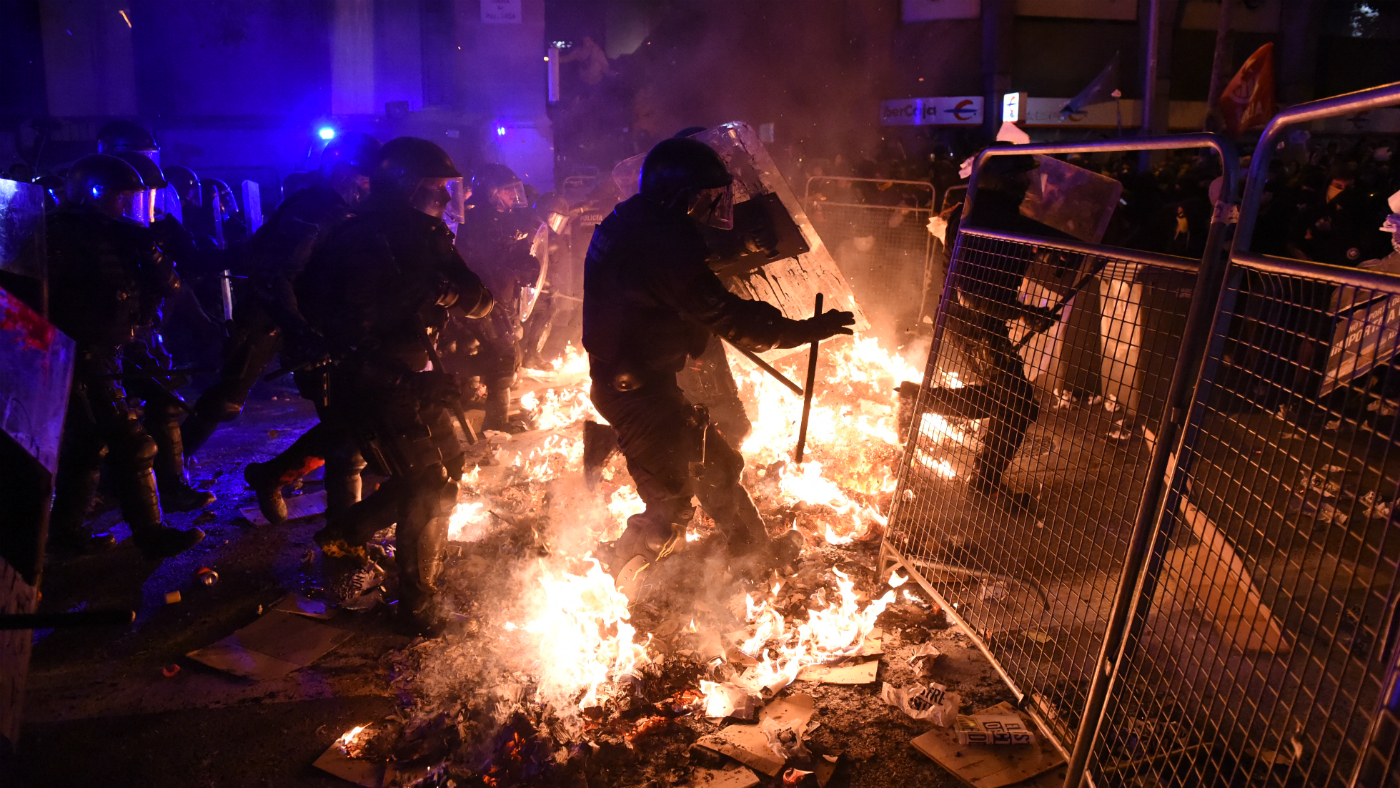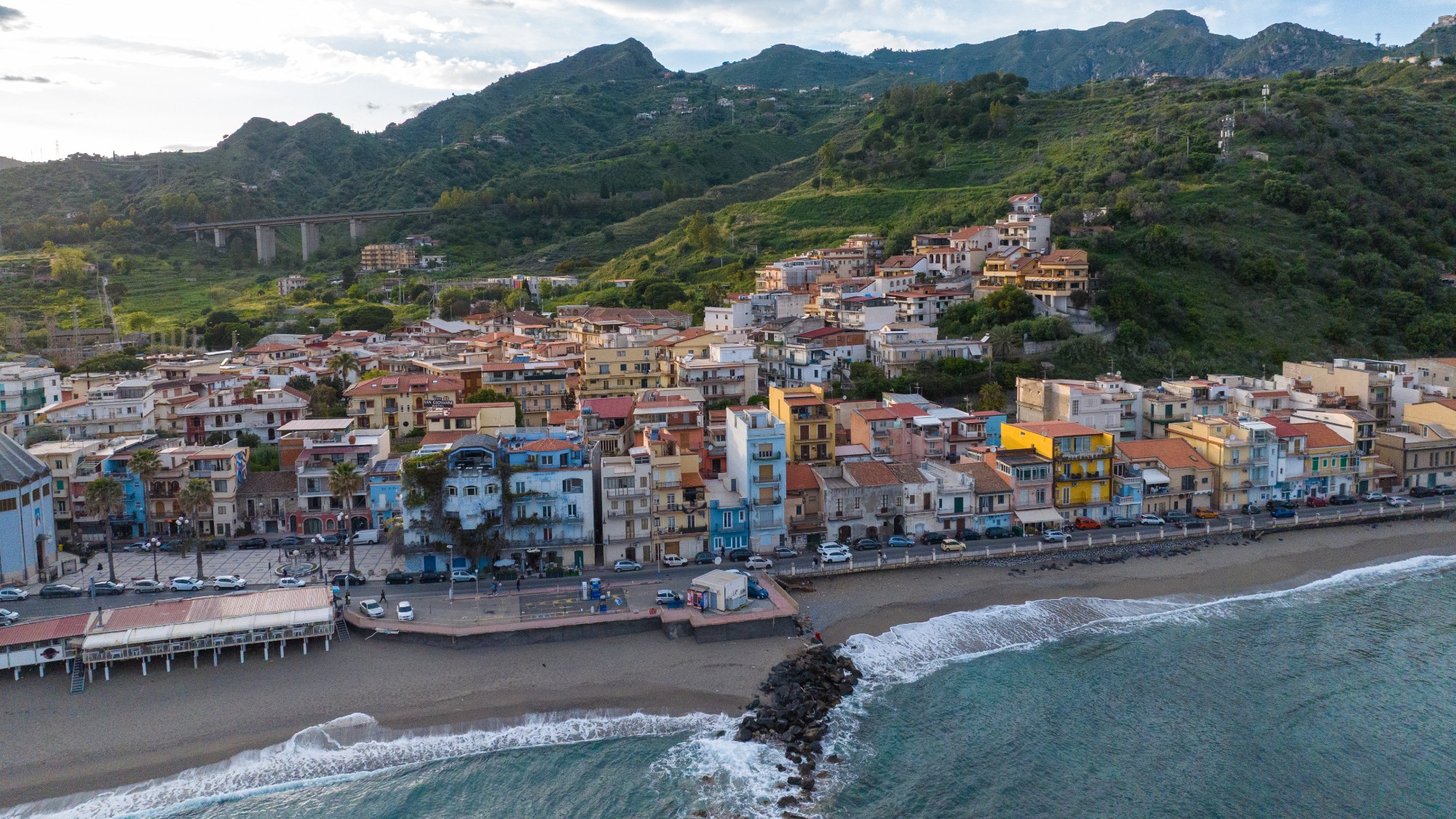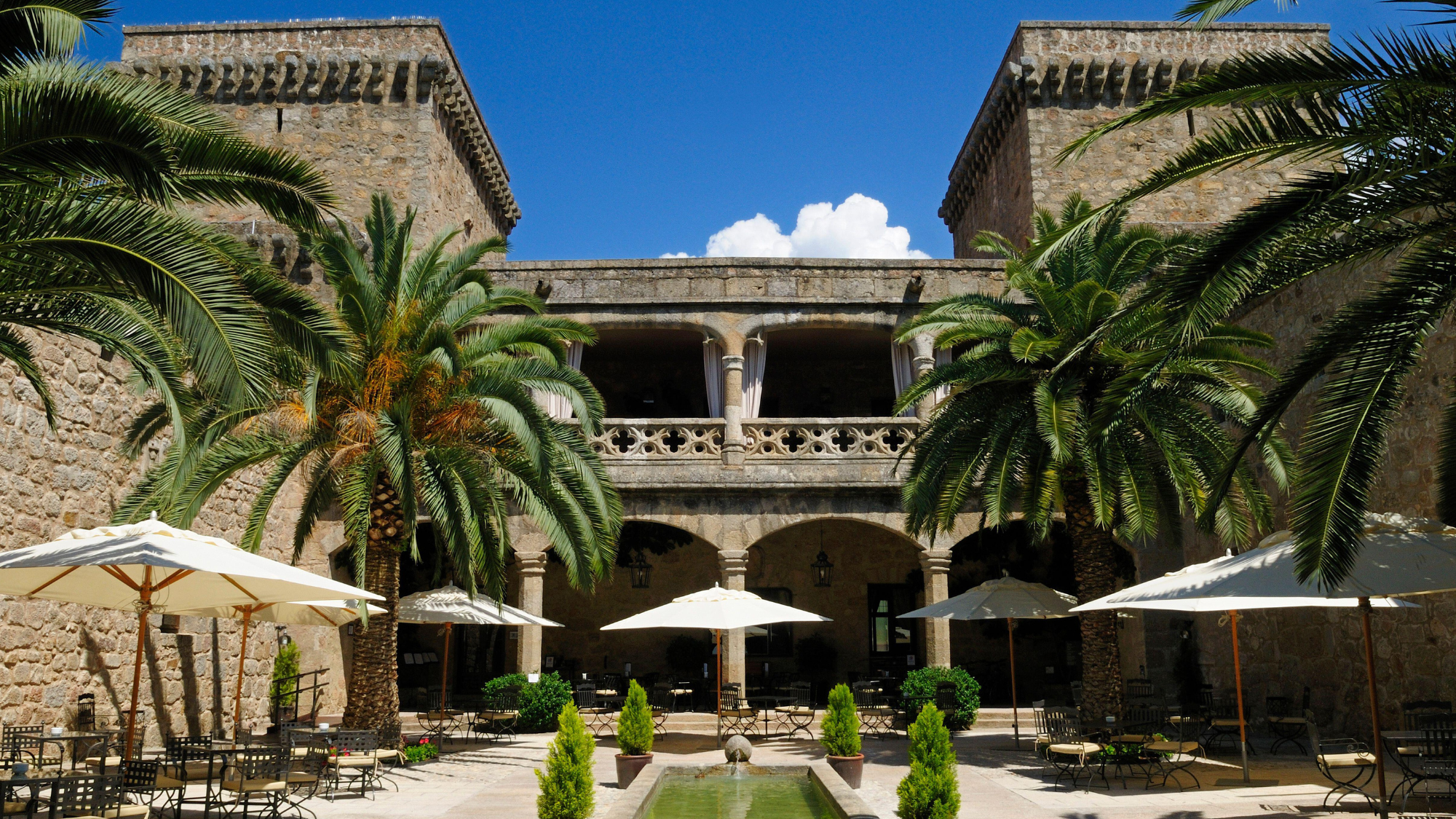How safe is it to visit Spain?
Barcelona hit by second night of violence as Catalan activists and police clash

A free daily email with the biggest news stories of the day – and the best features from TheWeek.com
You are now subscribed
Your newsletter sign-up was successful
Widespread violence has erupted for a second consecutive night in Barcelona following Monday’s controversial decision by the Spanish Supreme Court to convict 12 Catalan leaders for their role in the 2017 independence referendum.
The Guardian reports that pro-independence protesters “lit fires and erected makeshift barricades in the centre of the city” yesterday before being “dispersed by baton charges by Spanish and Catalan police”.
On Monday, security forces were authorised to use foam bullets after thousands of protesters headed to Josep Tarradellas Barcelona-El Prat Airport, leading to the grounding of more than 100 flights.
The Week
Escape your echo chamber. Get the facts behind the news, plus analysis from multiple perspectives.

Sign up for The Week's Free Newsletters
From our morning news briefing to a weekly Good News Newsletter, get the best of The Week delivered directly to your inbox.
From our morning news briefing to a weekly Good News Newsletter, get the best of The Week delivered directly to your inbox.
The activists “fought back by throwing objects, spraying fire extinguishers and breaking windows”, says NBC News.
The escalating violence across Catalonia over this week’s court rulings has triggered concerns about whether the region remains a safe tourist destination.
A drop in the number of foreign visitors as a result of the unrest could be disastrous for both Barcelona and Spain as a whole.
The Catalan capital racked up almost 9.1 million overnight visitors in 2018, making it the 12th most-visited city in the world, according to Mastercard statistics.
A free daily email with the biggest news stories of the day – and the best features from TheWeek.com
And with a total of 82.8 million international tourist arrivals in 2018, Spain is the second-most visited country on Earth, behind only France.
But amid fears of further clashes in Catalonia, is Spain still a safe choice for visitors in 2019?
Violence
It is unclear how long the violence in Catalonia will last, or whether it will escalate. The UK Foreign and Commonwealth Office (FCO) says that “further gatherings and demonstrations are likely to take place” and that visitors “should exercise caution in the vicinity of demonstrations as they may occur with little or no warning”.
This warning is echoed by the US Department of State, which advises visitors to “avoid the areas of the demonstrations”, “be aware of your surroundings”, “keep a low profile” and “notify friends and family of your safety”.
Some commentators have noted that Spanish police have developed a reputation in recent years for their strong response to civil unrest, particularly in regards to Catalonia’s independence movement. In the wake of the crackdown against the referendum in 2017, BBC reporters “spoke to journalists who witnessed police shoving people, grabbing them by the hair and throwing them down stairs”, as well as firing rubber bullets and unarmed protesters.
Human Rights Watch says that police in Spain are alleged to have used “excessive force” in the crackdowns against Catalan activists. Indeed, a top United Nations human rights official called on Spanish authorities to investigate claims of police violence linked to the vote.
Terrorism
As in many other countries in Western Europe, terrorism remains a constant - if relatively low-level - threat in Spain. The FCO reports that attacks “could be indiscriminate, including in places visited by foreigners”. The UK government department cites the attacks of August 2017, when terrorists drove vans at crowds of people in two locations in Catalonia, resulting in multiple fatalities.
Although these attacks were found to have been perpetrated by Islamic extremists, the FCO warns visitors to be aware also of the potential threat of terrorism by Basque separatists. This threat is extremely low, however, following the disbanding last year of Euskadi Ta Askatasuna (ETA), the militant separatist group that waged a decades-long campaign of bombings and shootings to establish an independent Basque state in northern Spain and southern France.
Petty crime
The DOS suggests that street crimes against foreign citizens “usually occur in the principal tourist areas across Spain”, such as Madrid and Barcelona. The department reports that these areas have seen “frequent pickpocketing and theft, as well as occasional violent attacks, some of which have required the victim to seek medical attention”.
The FCO agrees that violent crime is rare, but warns of two common crimes for which visitors should be on their guard. Many people “have their passports stolen while passing through airports, either on arrival in or departure from Spain”, says the FCO website. And in “some city centres and resorts, thieves posing as police officers may approach tourists and ask to see their wallets for identification purposes”.
Natural disasters and health
Spain is rarely hit by major natural disasters.
However, the FCO issued an “extreme risk” warning to foreigners visiting Valencia, Alicante, Murcia and Almeria in September after all four regions were hit by severe flooding that resulted in at least six deaths and mass evacuations.
Although the risk of flooding has passed, the department continues to warn against the biggest natural threat to foreign visitors: heat. Temperatures regularly reach over 40C in Spain during the summer months, posing a significant risk to people who do not take appropriate measures to protect themselves against serious medical conditions such as heat stroke and severe dehydration.
In addition, the extreme heat and resulting dryness greatly increases the risk of forest fires. The FCO warns visitors to “take care when visiting or driving through woodland areas”.
“Make sure cigarette ends are properly extinguished, don’t light barbecues and don’t leave empty bottles behind,” the website adds. “You should be aware that causing a forest fire is treated as a criminal offence in Spain even if unintentional.”
-
 How the FCC’s ‘equal time’ rule works
How the FCC’s ‘equal time’ rule worksIn the Spotlight The law is at the heart of the Colbert-CBS conflict
-
 What is the endgame in the DHS shutdown?
What is the endgame in the DHS shutdown?Today’s Big Question Democrats want to rein in ICE’s immigration crackdown
-
 ‘Poor time management isn’t just an inconvenience’
‘Poor time management isn’t just an inconvenience’Instant Opinion Opinion, comment and editorials of the day
-
 Spaniards seeing red over bullfighting
Spaniards seeing red over bullfightingUnder the Radar Shock resignation of top matador is latest blow in culture war over tradition that increasingly divides Spain
-
 ‘Hypocrisy’ and ‘blackmail’: Ryanair’s feud with Spain
‘Hypocrisy’ and ‘blackmail’: Ryanair’s feud with SpainUnder the Radar Bitter row over rising fees sees the Irish budget airline slash a million seats on regional routes this winter
-
 Destination unknown: the exciting ins and outs of mystery travel
Destination unknown: the exciting ins and outs of mystery travelThe Week Recommends Surprise yourself the next time you vacation
-
 Spain's love of sunflower seeds is wrecking its football stadiums
Spain's love of sunflower seeds is wrecking its football stadiumsUnder the Radar One club controversially bans 'national vice' as discarded 'pipas' shells block drains and erode concrete
-
 The Supreme Court revives a family's quest to recover looted Nazi art
The Supreme Court revives a family's quest to recover looted Nazi artUnder the Radar The painting in question is currently in a Spanish museum
-
 How to celebrate New Year's Eve globally without leaving home
How to celebrate New Year's Eve globally without leaving homeThe Week Recommends Stock up on grapes and (safely) set a scarecrow on fire
-
 La Zambra Hotel: reviving the glamour of a Spanish icon
La Zambra Hotel: reviving the glamour of a Spanish iconThe Week Recommends The former Byblos hotel has a boutique feel with resort-level amenities
-
 Explore a timeless corner of Spain by bike
Explore a timeless corner of Spain by bikeThe Week Recommends Take a 'dawdling route through the back-country' far from the tourism hotspots